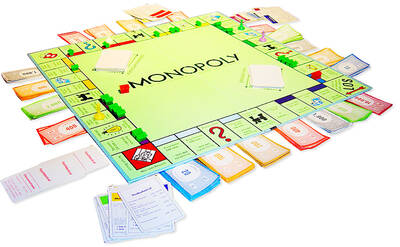Coa continued its reign as the best bar in Asia as the Hong Kong watering hole was number one once again on the Asia’s 50 Best Bars list.
Jigger & Pony in Singapore was No 2 in the awards announced Tuesday night at a live event in Hong Kong.
It’s the first time since 2019 that the ceremony has been held with all borders in the region re-opened after the COVID-19 pandemic. For the past two years, organizers tweaked the voting rules to acknowledge that people couldn’t travel as widely.

Photo: AFP
Coa has taken the top spot for three years running. The lounge highlights Mexican cocktails and agave spirits. Earlier this year the team behind it opened The Savory Project, where drinks steer away from the sweet side of the spectrum, and have names like Teriyaki and Thai Beef Salad.
“Every single drink has a little bit of Asia in it — like our Bitter Melon Collins,” said Coa co-founder Jay Khan.
The bar focuses on consistency and constantly bringing in new things, he said, as well as “making sure everybody has a good time.”
Singapore bars took the most spots on the list with 11, followed by Hong Kong with eight. Seven bars in Japan made the list, including five in Tokyo.
“Asia’s bars continue to push the envelope when it comes to fabulous drinking experiences,” said Mark Sansom, director of content for Asia’s 50 Best Bars. “That is evident from the talent and creativity on display at the bars on this year’s list from cities across the continent.”
Special awards announced prior to the event included the Michter’s Art of Hospitality Award, which went to Singapore’s Sago House. The Altos Bartenders’ Bartender crown, the only peer-voted award in Asia’s 50 Best Bars, went to Beckaly Franks, whose The Pontiac in Hong Kong operates with an all-female team.
“We’re just a bar that hopefully owns our space,” Franks said. “It’s whatever you want it to be. It focuses on amazing spirits, inclusivity and the female.”
The list of bars ranked 51 through 100 was announced last week, featuring establishments in 22 cities. Names there include Charles H from Seoul at No 51, Taipei’s To Infinity and Beyond at No 52 and Franks’s The Pontiac at 53. Singapore’s entries in that list include Ryan Clift’s Tippling Club at No 63 and The Elephant Room at No 64, while Kuala Lumpur’s Jungle Bird came in at No 55 and Tokyo’s Gold Bar took No 56.
This is the eighth edition of Asia’s 50 Best Bars. The platform is owned and operated by the UK-based William Reed Business Media, which also produces the World’s 50 Best Bars and Restaurants lists. The rankings are based on the votes of about 260 people that have been identified as experts on Asia’s bar scene.
Here are the top 10 winners, including all of the bars from Taiwan that made it on the list. Last year’s place is in parentheses, while a new appearance on the list is marked by an asterisk.
1. Coa, Hong Kong (1)
2. Jigger & Pony, Singapore (2)
3. BKK Social Club, Bangkok, Thailand (10)
4. Bar Benfiddich, Tokyo, Japan (5)
5. Zest, Seoul, Korea (48)
6. Tropic City, Bangkok, Thailand (17)
7. Nutmeg & Clove, Singapore (36)
8. Argo, Hong Kong (3)
9. Darkside, Hong Kong (13)
10. Sago House, Singapore (31)
11. Indulge Experimental Bistro, Taipei, Taiwan (6)
41. Vender, Taichung, Taiwan (*)
43. The Public House, Taipei, Taiwan (*)

With one week left until election day, the drama is high in the race for the Chinese Nationalist Party (KMT) chair. The race is still potentially wide open between the three frontrunners. The most accurate poll is done by Apollo Survey & Research Co (艾普羅民調公司), which was conducted a week and a half ago with two-thirds of the respondents party members, who are the only ones eligible to vote. For details on the candidates, check the Oct. 4 edition of this column, “A look at the KMT chair candidates” on page 12. The popular frontrunner was 56-year-old Cheng Li-wun (鄭麗文)

“How China Threatens to Force Taiwan Into a Total Blackout” screamed a Wall Street Journal (WSJ) headline last week, yet another of the endless clickbait examples of the energy threat via blockade that doesn’t exist. Since the headline is recycled, I will recycle the rebuttal: once industrial power demand collapses (there’s a blockade so trade is gone, remember?) “a handful of shops and factories could run for months on coal and renewables, as Ko Yun-ling (柯昀伶) and Chao Chia-wei (趙家緯) pointed out in a piece at Taiwan Insight earlier this year.” Sadly, the existence of these facts will not stop the

Oct. 13 to Oct. 19 When ordered to resign from her teaching position in June 1928 due to her husband’s anti-colonial activities, Lin Shih-hao (林氏好) refused to back down. The next day, she still showed up at Tainan Second Preschool, where she was warned that she would be fired if she didn’t comply. Lin continued to ignore the orders and was eventually let go without severance — even losing her pay for that month. Rather than despairing, she found a non-government job and even joined her husband Lu Ping-ting’s (盧丙丁) non-violent resistance and labor rights movements. When the government’s 1931 crackdown

The first Monopoly set I ever owned was the one everyone had — the classic edition with Mr Monopoly on the box. I bought it as a souvenir on holiday in my 30s. Twenty-five years later, I’ve got thousands of boxes stacked away in a warehouse, four Guinness World Records and have made several TV appearances. When Guinness visited my warehouse last year, they spent a whole day counting my collection. By the end, they confirmed I had 4,379 different sets. That was the fourth time I’d broken the record. There are many variants of Monopoly, and countries and businesses are constantly